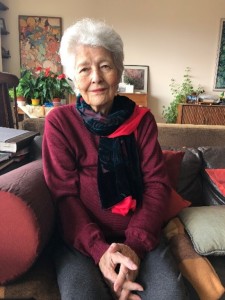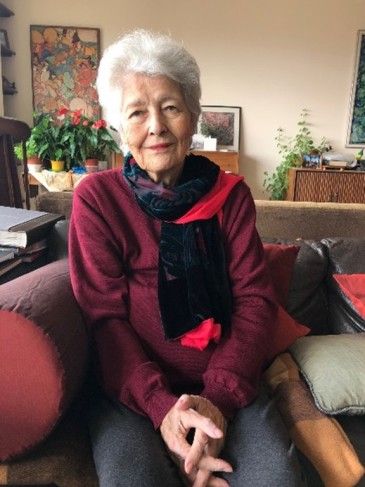Why choose Emilie Nasrallah?
Emilie Nasrallah (1931-2018) [1]was born in Kaukaba, a village in the south of Lebanon. She lived there until she had completed her additional studies, then went to high school in a region close to the capital Beirut and obtained her baccalaureate in 1958 at the American University. As a journalist and teacher she worked with her pen for women's freedom in a patriarchal society where women at that time had no right to take part in decision making or even to decide on their social and academic future.
Emilie Nasrallah published this text in 1962, in which she gave free rein to her ideas to uncover the hidden truth about the social relations in her Lebanese village (to which she dedicated her work on page 5: “To my well-loved village where the elements of my existence were blended with those of the red sun”) and the relationship between the 'human being' and mother nature who protected her.
The author covered many themes in her writings including family roots, Lebanese country life, the war in which she, her family and her fellow citizens suffered, the fight for women's equality and emancipation especially with respect to freedom of expression etc. She also took part in many literary conferences in Canada, the United States, Germany, Switzerland, Holland, Denmark and several Arab countries. This explains why many of her novels were translated into English, German, Dutch, Danish, Finnish and Thai. On 28 August 2017 she received the Goethe medal[2] from the director of the Goethe Institute at a ceremony in Weimar (Germany). This was an important honour on the part of Germany. Moreover, on 6 February 2018, the President of the Republic of Lebanon, Michel Aoun, represented by the Minister of Justice, Salim Jreissati, honoured Emilie Nasrallah with the national Order of the Cedar with the rank of Commander in recognition of her remarkable literary contribution to Lebanon. It should be noted that this was the first time that such an honour had been awarded to a female writer.
Les oiseaux de septembre, was her first work, which introduced her to a literary world in which she was able to achieve a fusion of the reality which she had witnessed and a fictional reality which she wove together with great passion to create her first novel. In it she introduced existential themes: nature, love, death, emigration, separation, fate, solitude, lack of understanding, and a revolt against customs and traditions. |
After its publication the work was awarded three literary prizes and in 2002 a special edition was published to mark its fiftieth anniversary, accompanied by an audio CD which gave listeners the opportunity to hear Emilie Nasrallah telling the story of Oiseaux de Septembre in her own voice.
The Lebanese philosopher, poet and writer Mikhael Naimy[3] made special mention of the authenticity of the sentiment and the verbal, humanitarian and aesthetic value of the work, and marvelled at the precise description of the Lebanese village and its inhabitants. He particularly admired Emilie Nasrallah's ability to show the overwhelming impact of urban modernity in the face of which they felt left behind.








